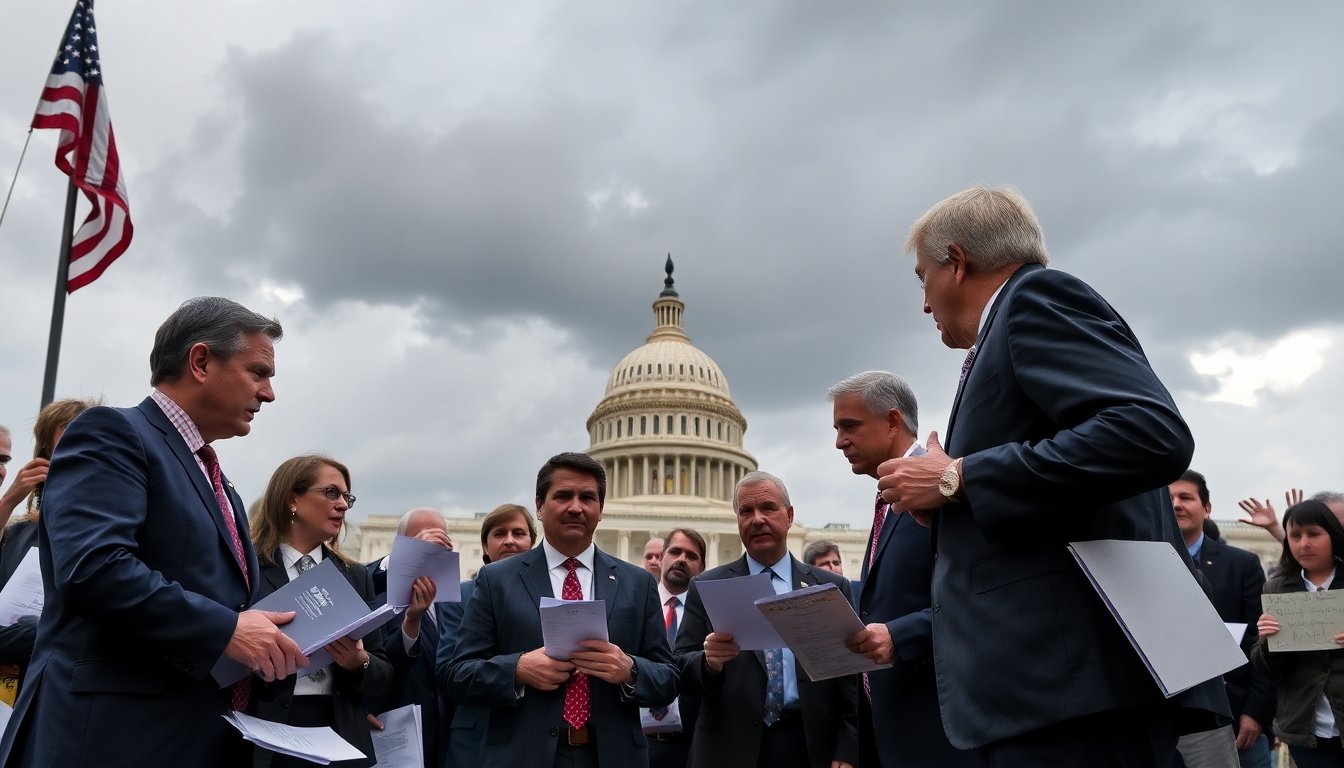Table of Contents
In a significant political development, former President Donald Trump has retracted his endorsement of Republican Representative Marjorie Taylor Greene from Georgia. This decision follows Greene’s recent calls for the release of documents related to convicted pedophile Jeffrey Epstein. On his social media platform, Truth Social, Trump criticized Greene as “wacky” and a “lunatic,” indicating a definitive end to their prior alliance.
Trump’s announcement reflected his frustration with Greene’s ongoing complaints regarding his administration. He stated, “All I see ‘Wacky’ Marjorie do is COMPLAIN, COMPLAIN, COMPLAIN!” This change follows a series of disagreements, particularly concerning Greene’s support for extending health insurance subsidies under the Affordable Care Act, which is set to expire soon.
The facts
Greene has been a prominent supporter of Trump but has recently diverged from his positions. She has publicly called for the release of Epstein files, which has reportedly irritated Trump, who has dismissed the Epstein scandal as a Democratic “hoax.” Tensions escalated after Trump suggested that Greene reconsider her ambitions for higher office, citing her low popularity ratings.
Trump’s perspective on Greene’s ambitions
Trump indicated in his post that he had shared a poll with Greene, revealing her low chances of winning a Senate or gubernatorial race without his support. He remarked, “It seemed to all begin when I sent her a Poll stating that she should not run for Senator or Governor; she was at 12% and didn’t have a chance.” This polling data seems to have exacerbated their rift, prompting Greene to challenge Trump’s authority.
Trump’s frustrations also included Greene’s attempts to reach out to him. He noted, “She has told many people that she is upset that I don’t return her phone calls anymore.” His busy schedule appears to have led to limited interactions with Greene, whom he described as a “ranting lunatic.”
Greene’s response
In reaction to Trump’s withdrawal of support, Greene publicly expressed her discontent on social media. She shared messages exchanged with Trump, asserting that he had attacked and lied about her. Greene stated, “President Trump just attacked me and lied about me,” emphasizing her limited contact with him contrary to his claims. Her messages included requests for Trump to investigate Epstein’s flight logs, highlighting the involvement of notable figures like Bill Clinton.
Underlying motivations for Greene’s demands
Greene has articulated her reasons for pursuing the release of Epstein-related documents, stating, “I wanted the Trump administration to release the Epstein files for the women who were victims.” She views Epstein as part of a broader conspiracy, referring to him as “the spider that wove the web of the deep state.” This perspective showcases her commitment to holding powerful individuals accountable, despite the resulting conflict with Trump.
Additionally, Greene suggested that Trump’s actions were intended to intimidate other Republicans ahead of significant votes. She remarked, “It’s astonishing really how hard he’s fighting to stop the Epstein files from coming out.” Although she has supported Trump in the past, she clarified that her allegiance does not amount to blind loyalty, stating, “I have supported President Trump with too much of my precious time and fought harder for him even when almost all other Republicans turned their back and denounced him.” This statement highlights the tension between loyalty and independent convictions within the Republican Party.
Future implications for Greene and Trump
Trump’s withdrawal of support for Greene could have substantial implications for the upcoming midterm elections. He hinted at the possibility of endorsing a more loyal Republican candidate to challenge Greene in her district, stating, “I understand that wonderful, Conservative people are thinking about primarying Marjorie in her District of Georgia.” This sentiment underscores Trump’s desire to maintain a strong grip on the Republican Party and his expectation of unwavering loyalty from its members.
As the political landscape evolves, the fallout from this incident illustrates the complexities of party loyalties and individual convictions. Greene’s determination to pursue accountability regarding Epstein may resonate with some constituents but has undoubtedly positioned her against a former president with considerable influence over the party. The coming months are likely to reveal how this conflict will shape the dynamics of the Republican Party and Greene’s political future.


